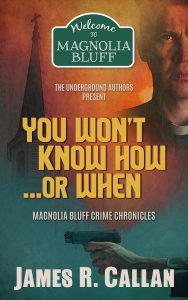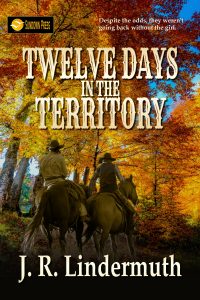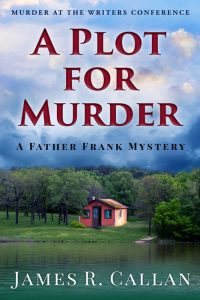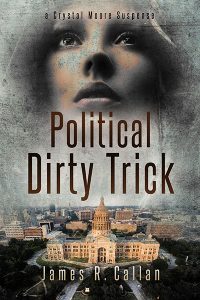Differing opinions are what make horse races. And among writers you certainly have differing opinions. One such case is the question of what is more important in a novel: character or plot. I’m not going to take sides – exactly. Today, I’m going to talk about characterization. Next week, I’ll talk about plot. And beyond that, I’ll discuss another important aspect of the novel. But, today, it’s character.
And among writers you certainly have differing opinions. One such case is the question of what is more important in a novel: character or plot. I’m not going to take sides – exactly. Today, I’m going to talk about characterization. Next week, I’ll talk about plot. And beyond that, I’ll discuss another important aspect of the novel. But, today, it’s character.
You need the reader to identify with your main character.  You’d like for your reader to imagine living inside your character’s skin. You want the reader to say, “Yeah, I’ve been there.” Or, “I can see myself in that position.” This implies that the reader knows enough about the leading character to able to do this. So, the writer must show the reader, sooner or later (but not too late) what makes this character tick. Many suggest that the reader meet and get to know something about your protagonist in the first chapter—if not on the first page. The reader cannot establish a relationship with the protagonist without knowing what the character thinks. Reading about what he or she does, but not why she does it, will not likely draw the reader into a close relationship.
You’d like for your reader to imagine living inside your character’s skin. You want the reader to say, “Yeah, I’ve been there.” Or, “I can see myself in that position.” This implies that the reader knows enough about the leading character to able to do this. So, the writer must show the reader, sooner or later (but not too late) what makes this character tick. Many suggest that the reader meet and get to know something about your protagonist in the first chapter—if not on the first page. The reader cannot establish a relationship with the protagonist without knowing what the character thinks. Reading about what he or she does, but not why she does it, will not likely draw the reader into a close relationship.
Most would agree that the protagonist must want something desperately. The reader must understand this need, and must feel that the character deserves it. Here again, actions can show the reader a lot. But knowing what the character is thinking, what the character is feeling, will place the reader in the character’s shoes. You want your reader to say, “I would have felt the same way.” Or, “I would have done the same thing.”
Of course, we as writers often have the protagonist doing things we would never have the courage to do. That’s okay. We might feel like doing it – if only we had the guts to do it. Or we might think the character is stupid for doing that. But, that’s also okay as long as the reader understands the motivation, can see the need to do this from the protagonist’s point of view.
We must make the reader really care about our leading lady or leading man. This person is someone the reader would like to know, spend time with, have coffee with or maybe just watch a sunset with. Now, the protagonist is a real person. And now, we want the readers to say, and to feel, that the protagonist deserves better.
The basic premise in most novels is that the protagonist is trying to achieve something, to reach some goal, to accomplish some task. Part of our job as writers is to make the reader pull for the protagonist. That goal must become important to the reader. The reader can think the goal is silly, or not worth the effort, or perhaps even a bad idea. But, it is our job to make the reader hope that this leading character will actually achieve that goal.
Say the protagonist is a woman trying to cross a line. It could be a goal line, a finish line, an imaginary line, or a line between two countries. It makes no difference. It is the goal she has set for herself. She has worked hard to get close but there are so many obstacles, and they seem to grow bigger and more difficult the closer she gets to that line. And suddenly, it doesn’t look like she will make it. Now, the reader actually may think it is not the thing to do. It’s too dangerous, or it’s likely to cause grave physical damage. If she doesn’t stop now, she could end up dead, or in the hospital. She should give it up. But, it is extremely important to the protagonist, and because it is, the reader is going to back her. “I don’t think you should do this, but if you must, I’m with you all the way.”
It could be a goal line, a finish line, an imaginary line, or a line between two countries. It makes no difference. It is the goal she has set for herself. She has worked hard to get close but there are so many obstacles, and they seem to grow bigger and more difficult the closer she gets to that line. And suddenly, it doesn’t look like she will make it. Now, the reader actually may think it is not the thing to do. It’s too dangerous, or it’s likely to cause grave physical damage. If she doesn’t stop now, she could end up dead, or in the hospital. She should give it up. But, it is extremely important to the protagonist, and because it is, the reader is going to back her. “I don’t think you should do this, but if you must, I’m with you all the way.”
As the reader turns the pages at this point, the writer wants to make it so compelling that the reader is actually feeling the strain of trying to cover the last few feet. The reader’s muscles have tensed up, and perhaps the reader is actually leaning in the direction the protagonist is trying to go. Do it right, and the reader will be affected physically, not just feel the struggle to advance, but will actually strain (unconsciously) to help the woman achieve her goal.
Not easy to accomplish. But do it and you have a character the reader will remember. And that’s the key to success. The reader will remember to tell others about this great character. The reader will look to buy the next book featuring this character. You will be on the road to success.
The keys. Make the reader identify with the character; care about the character; feel for the character; help the character reach her goal.
Next: the case for the plot.

 the Lone Star Literary Life (LSLL) to present a Book Blog Tour for the Magnolia Bluff Crime Chronicles series. For 12 days, the books in this series – now standing at 21 books – will be reviewed and discussed by various members of the Lone Star group. Each day from November 27 to December 8, the Magnolia Bluff books will be the focus on he LSLL website. In addition to the reviews, LSLL will also hold a giveaway. Anybody who clicks on the links to the reviews will be entered in a drawing. Here are the locations where the blog will be each day.
the Lone Star Literary Life (LSLL) to present a Book Blog Tour for the Magnolia Bluff Crime Chronicles series. For 12 days, the books in this series – now standing at 21 books – will be reviewed and discussed by various members of the Lone Star group. Each day from November 27 to December 8, the Magnolia Bluff books will be the focus on he LSLL website. In addition to the reviews, LSLL will also hold a giveaway. Anybody who clicks on the links to the reviews will be entered in a drawing. Here are the locations where the blog will be each day. Hop on and sign up for some free books, OR a $25 Amazon gift card. The reviews, synopsis, and author comments might lead you to getting some interesting books, and meeting some interesting authors. And it’s free to enter.
Hop on and sign up for some free books, OR a $25 Amazon gift card. The reviews, synopsis, and author comments might lead you to getting some interesting books, and meeting some interesting authors. And it’s free to enter.
 use built by a man who rode with Buffalo Bill Cody. A retired newspaper editor, he is now librarian of his county historical society where he assists patrons with genealogy and research. He has published 19 novels and two non-fiction regional histories. He is a member of International Thriller Writers and a past vice president of the Short Mystery Fiction Society.
use built by a man who rode with Buffalo Bill Cody. A retired newspaper editor, he is now librarian of his county historical society where he assists patrons with genealogy and research. He has published 19 novels and two non-fiction regional histories. He is a member of International Thriller Writers and a past vice president of the Short Mystery Fiction Society.

 main speaker at a writers conference. But after the opening session and in front of a crowd, Maggie DeLuca, Father Frank’s sister, accuses Granet of stealing her story and says he will pay.
main speaker at a writers conference. But after the opening session and in front of a crowd, Maggie DeLuca, Father Frank’s sister, accuses Granet of stealing her story and says he will pay.
 In Deadly Additive, Donn Taylor named a secondary character who always operated on the edge, Brinkman. An accident? I don’t think so. Ian Fleming gave us some insight into the character of his antagonist in The Richest Man in the World when he named him Auric Goldfinger.
In Deadly Additive, Donn Taylor named a secondary character who always operated on the edge, Brinkman. An accident? I don’t think so. Ian Fleming gave us some insight into the character of his antagonist in The Richest Man in the World when he named him Auric Goldfinger.

 who began her writing career in an RV roaming around the USA with her husband, Joe. She brags about visiting a location before it becomes the setting in her next contemporary romance or romantic suspense. To date, June has 17 novels published.
who began her writing career in an RV roaming around the USA with her husband, Joe. She brags about visiting a location before it becomes the setting in her next contemporary romance or romantic suspense. To date, June has 17 novels published. My aunt and mother always told the story of how one Sunday while saying mass, he spotted a young teen, much younger than my Mary Louise. He waited several years for her to grow up then stepped down from the priesthood to marry her. I wish I knew some of those rich details of their courtship, but since I don’t, I fictionalized their romance.
My aunt and mother always told the story of how one Sunday while saying mass, he spotted a young teen, much younger than my Mary Louise. He waited several years for her to grow up then stepped down from the priesthood to marry her. I wish I knew some of those rich details of their courtship, but since I don’t, I fictionalized their romance.